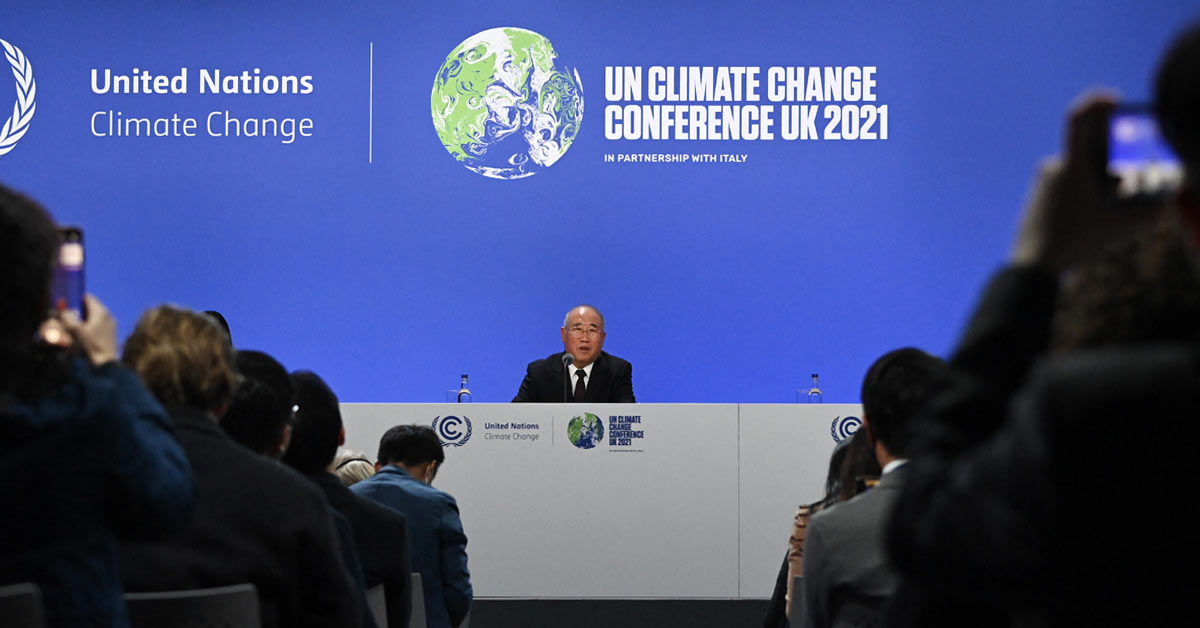Activists and politicians have cautiously welcomed an unexpected United States-China declaration that vowed to boost climate co-operation.
The European Union (EU) and United Nations (UN) described the move as encouraging and an important step, but Greenpeace said both countries needed to show more commitment.
The US and China are the world's two biggest carbon dioxide (CO2) emitters.
They said they would work together to achieve the 1.5 Celsius (C) temperature goal set out in the 2015 Paris Agreement.
Scientists say that limiting global temperature rises to 1.5C will help humanity avoid the worst climate impacts. This is compared with pre-industrial temperatures.
The announcement by the two global rivals was made on Wednesday at the ongoing COP26 climate summit in Glasgow. US President Joe Biden and his Chinese counterpart Xi Jinping are now expected to hold a virtual meeting as early as next week.
Reacting to the declaration, Genevieve Maricle, director of US climate policy action at pressure group World Wide Fund for Nature (WWF), said: "This announcement comes at a critical moment at COP26 and offers new hope that, with the support and backing of two of the world's most critical voices, we may be able to limit climate change to 1.5 degrees.”
"But we must also be clear-eyed about what is still required if the two countries are to deliver the emission reductions necessary in the next nine years. 1.5C-alignment will require a whole-of-economy response."
Greenpeace International Executive Director Jennifer Morgan also welcomed the declaration but warned that both countries needed to show greater commitment to reaching climate goals.
UN Secretary-General Antonio Guterres said the announcement was "an important step in the right direction".
EU climate policy chief Frans Timmermans said it was "really encouraging" to see China and the US working together.
"It shows also that the US and China know this subject transcends other issues. And it certainly helps us here at COP to come to an agreement", he added.
Meanwhile, Kevin Rudd, former Australian prime minister and now president of the Asia Society, which works on global climate change agreements, told the BBC that the agreement was "not a game-changer" but still a big step forward.
"The current state of geopolitics between China and the United States is... awful, so the fact that you can extract this climate-specific collaboration agreement between Washington and Beijing right now is an important piece of momentum," he said.
The US-China declaration calls for increased efforts to close the "significant gap" that remains to achieve that 1.5C target.
There were steps agreed on a range of issues including methane emissions, the transition to clean energy and de-carbonisation.
China's top climate negotiator Xie Zhenhua told reporters that on climate change "there is more agreement between China and US than divergence".
China refused to join an agreement earlier this week to limit methane - a harmful greenhouse gas but has instead pledged to develop a "national plan" to address the issue.
Xie was followed by John Kerry, the US climate envoy, who said that while US and China had many differences, co-operation on climate was vital.
"Every step matters right now and we have a long journey ahead of us," he said.
China is the world's largest emitter of carbon dioxide, followed by the US. In September, Xi announced that China would aim for carbon neutrality by 2060, with a plan to hit peak emissions before 2030.
The US is aiming for net-zero by 2050.
